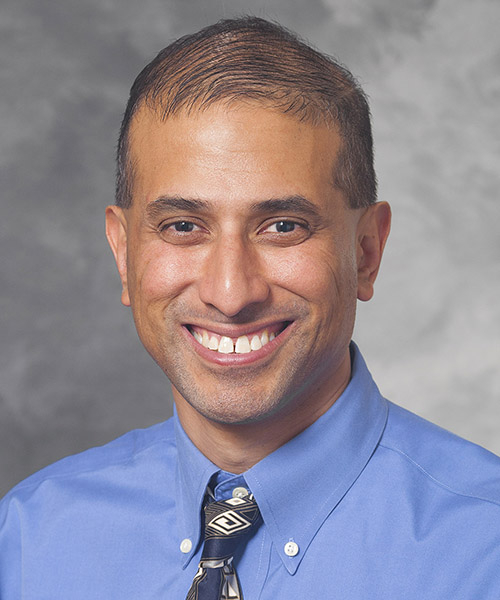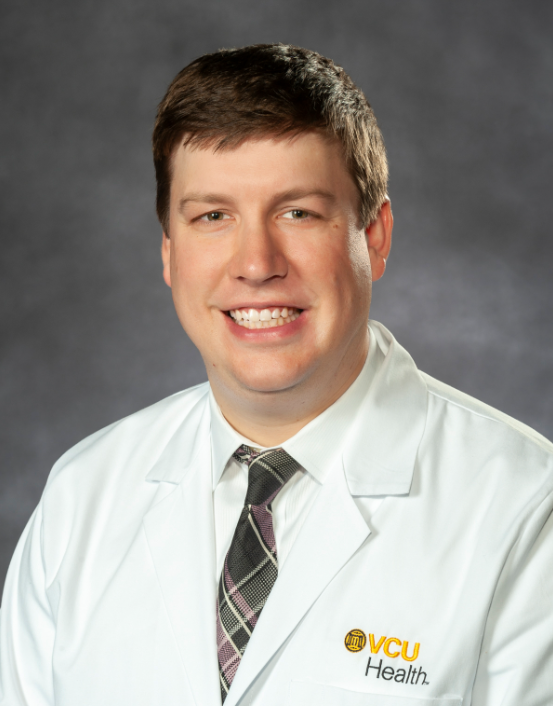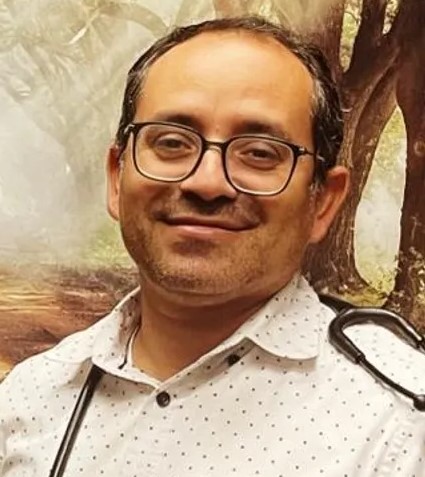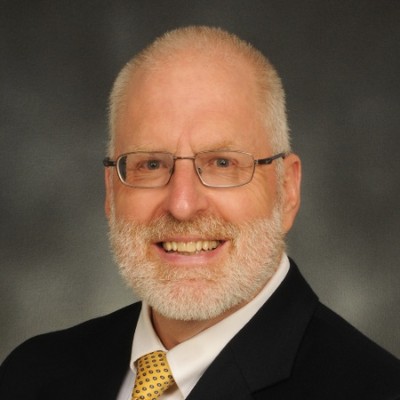Member Profiles

Manish N. Shah, MD, MPH, FACEP, AGSF
Professor
University of Wisconsin
Physician Member
Though I’m not a fellowship-trained geriatrician, I’ve been an AGS member since 2002. What can non-geriatricians like me derive from AGS membership? The answer is plenty!
I’m a researcher who specializes in aging issues, and who is also an emergency medicine specialist, so membership affords me excellent opportunities to become involved in the science and policy behind caring for medically complex older adults. What’s more, my membership ensures that I’ll have a seat at a table where like-minded professionals can help impact the policies and regulations that focus on providing emergency care for older adults.
Beyond those benefits, I reap rich personal rewards, too. I enjoy the lively information sharing that occurs between emergency medicine researchers and other interprofessional AGS members in the various forums we share as a community. At the AGS Annual Scientific Meetings, for example, I have a great time running around and reconnecting with geriatrics professionals I’ve met over the years.

Mariu Duggan, MD
Fellowship Program Director
Vanderbilt University
Physician Member
I’ve always had an affinity for older adults. As a little girl visiting nursing homes to play piano for the residents, I was so impressed that such a small thing, like playing a simple song (usually with a handful of wrong notes!), could bring such joy to the residents’ faces and light up their lives–even if just for a moment. In college, Lewy body dementia took the best of my Puerto Rican poet grandfather’s mind. Being hundreds of miles away, unable to help besides phone calls, I volunteered locally in Boston at a nursing home run by the Little Sisters of the Poor, who offer the neediest elders a home, caring for them as family. While visiting with residents weekly, I was inspired by the love that the sisters put into their care and by the great impact they had on residents through small acts of service and companionship. As I progressed through my medical training, I kept coming back to the older adults and the impact that small acts with great love could have on their lives. I learned that by stepping back and taking a 50,000-foot view I can often see small things to tweak that would greatly enhance their quality of life. I became more and more interested in geriatrics from a cognitive standpoint through my education, but I can say that it originally started in the heart and out of an affinity for serving older adults.
Why did you first join the AGS? I first joined the American Geriatrics Society during my first year of medical school because of my mentor, Dr. Jim Powers. Jim, still an active AGS member today, was my research mentor and a model physician. He brought the opportunity to start an AGS student chapter to my attention and that is where my involvement with the AGS began. With his support, I started a student chapter at Vanderbilt University in Nashville, Tennessee. The chapter held a few events a year, learned about geriatrics together, and got to meet with different geriatricians.
My favorite aspect of being a member of the AGS? When I was a Fellow, I attended my first AGS Annual Scientific Meeting. There, I was exposed to many of the offerings that the AGS provides and was able to meet people like me, who were in a similar place in their careers, education, and development as well as meet experts who were presenting about different innovations and cutting-edge advancements in the field. The AGS Annual Scientific Meeting is one of my favorite parts of being an AGS member because it gives you the opportunity to connect with others and experience how wonderful the geriatrics community is— friendly, warm, supportive, and collaborative. Being able to connect and learn with others is so important, especially in our field, where there are so few geriatricians that we are often isolated and without a community of peers or mentors. The AGS Annual Meeting brings together geriatricians and geriatrics professionals alike for an incredibly edifying and communal experience.
My second favorite aspect of being a member of the AGS is the online community. I belong to a few different AGS online communities, where I get regular updates on recent posts through the Daily Digest email. I find these online communities to be a really great feature because not only can you ask a question and receive responses from others, but you can learn from other people’s questions. It is a great way to regularly receive new information right to my inbox. When COVID-19 first hit, I posted a question in the ADGAP online community looking for anyone who wanted to explore shared didactics for fellows. A response to that post connected five programs that together would start what would become Geri-A-FLOAT (GeriAtrics Fellows Learning Online And Together) with Anna Goroncy, MD, of the University of Cincinnati; Ryan Chippendale, MD, of Boston University; Josh Uy, MD, of the University of Pennsylvania; and Colleen Christmas, MD, of Johns Hopkins University. Geri-A-Float brings together fellows and faculty from across the country virtually to learn and to support each other. Geri-A-FLOAT makes cuttingedge knowledge accessible across programs by providing an opportunity for fellows to connect with experts and leaders in geriatrics from all over the country and sometimes the world. We’ve had participants from places like Africa, Mexico, Spain, and Turkey! GeriA-FLOAT might not have ever come to be if it weren’t for the AGS online community connecting me to others.
The teachers’ section is great too. I always enjoy learning what other educators are doing across the country through their educator spotlight feature and their sessions during the annual meeting. I also enjoy AGS resources such as the Geriatric Review Syllabus (GRS) and JAGS, the premier journal for clinical aging research.
As a fellowship program director, it has been beneficial being able to connect with other fellowship program directors from across the country through the ADGAP online community. That group does a pre-conference before the AGS Annual Meeting and attending those sessions has enabled me to learn about different ways to improve our local fellowship program. Folks share best practices that they have implemented, and we learn from and support each other.
In closing.. Geriatrics is the best specialty. In my experience, geriatricians and geriatrics professionals are the most compassionate, holistic physicians that I’ve met, and the community is inviting, warm, and friendly. It has been neat to see the field advancing and becoming more embedded in other areas of medicine and the spread of initiatives like the Age-Friendly Health Systems. All of this coupled with meeting bright and driven learners from all over the country through Geri-A-FLOAT have made me very optimistic about the future of geriatrics.

Christian Bergman, M.D., CMD, FACP
Assistant Professor, Division of Geriatric Medicine
Virginia Commonwealth University
Physician Member
When I applied to medical school, one of my first tasks was to write a personal statement. Mine, like many others, was a version of “I want to help people.” I soon discovered that helping people is the most meaningful part of my work. Geriatrics offers the opportunity to enjoy deep relationships with older adults. In geriatrics, we don’t just ask about someone’s symptoms, we dig a little deeper—asking folks about hobbies, families, what sports teams they like. We develop a complete picture of the person in our care. Because so many older adults live with multiple chronic conditions, few randomized controlled research trials exist to guide our treatment strategies. That makes certain aspects of geriatrics care that much more important. We’re often asking a person what their goals of care are and what “quality of life” really means to them.
Creating personalized care becomes a reality in geriatric medicine. And that’s why my AGS membership is so valuable. The networking that members enjoy allows us to connect with experts in many fields and discuss our practices. We connect in person at the Annual Scientific Meeting, online through outlets like MyAGSOnline, and in print through our info-packed quarterly newsletter. Another key way AGS membership has enhanced my practice is through its generous support. I get a free AGS e-membership as a resident, I’ve enjoyed travel stipends for my last two trips to the Annual Scientific Meeting, and I received reduced rates for meeting registration—essential support for an emerging geriatrician.
The Annual Scientific Meeting allows people early in their careers to have eye-opening experiences, meeting some of the leading experts in our field. At the 2015 meeting, for example, I presented a paper on gun violence, and the case triggered a fascinating dialogue about a hot and often ignored topic for our country and older adults. It was a tremendous opportunity to shed light on a topic that we don’t often get to talk about! More broadly, I’ve also volunteered as chair of the Resident Interest Group for AGS. Our goal is to help design events for the Annual Scientific Meeting geared specifically toward residents. We’re planning to promote networking opportunities for fellows and residents during the Annual Scientific Meeting, and to connect resident and student chapters across the country.
Beyond my residency and my work with AGS, the home life I share with my wife, Rebecca, is incredibly fulfilling. We have two sons—Zach was born last August and Eric is three. It’s a roller coaster, balancing home and career, and I’ve had discussions with my peers about navigating residency while raising a family. My system: I block out family time when I come home. We enjoy dinner together and have our bedtime routines with the kids. As a family, we go the beach, the zoo, and the children’s museum—things we can all enjoy. And, I just finished the Game of Thrones series. No spoilers!

Arbis Rojas, MD
Geriatric Medicine Physician
Private Practice
Physician Member
My grandmother’s battle with progressive dementia made an enormous impression on me as a teenager. I saw first-hand how the disease and its behavioral disturbances affected her and my family as we coped with the inadequacies facing older adults in our health care system. The unhelpful doctor visits and unnecessary trips to the emergency department were particularly difficult for all of us. The awareness I developed during this experience triggered my interest in a career as a geriatrician. I see geriatrics as a personalized form of medicine, and I appreciate the way trainees are exposed to many different medical specialties, including neurology, psychiatry, and physical medicine and rehabilitation.
I joined the AGS when I began my private practice in 2016. As a board certified geriatrician, I have found that my membership helps me stay abreast of the latest advancements in our field. For example, AGS helps members learn the intricacies of CPT-coding (Current Procedural Terminology) and helps prepare them for chronic care management, annual wellness visits, and advance care planning. There has to be continual change in how geriatricians in private clinics practice medicine. Value-based medicine is the future. Where is the value in geriatric medicine? AGS is essential to us all for maintaining the focus on the value of caring for older adults. The AGS mission aligns with my professional mission: to meet the health needs of our older adult population and to focus on their independence and quality of life. I hope to contribute more to this great cause in the future as a leader, sponsor, and partner. The benefits of my AGS membership are many: attending the annual scientific conferences, exchanging ideas on the AGS website forum, and contributing as much as I can to improving the health and wellness of older adults. AGS has certainly contributed to my personal and professional growth and for this I am forever grateful.
One major benefit of my AGS membership is attending the annual meetings. I particularly enjoy meeting new colleagues and exchanging ideas. The lectures are excellent because they present various specialty fields I might not otherwise be exposed to. I take that information and create my own subspecialty clinics to assist homebound patients who cannot physically see specialists but who benefit immensely from new clinical approaches. I am working on improving the operations of the clinic from a chronic care management standpoint. I am working on a mobile and cloud application that is doctor-friendly to help better manage offices. This calls on my understanding of chronic care management in our older-adult population. Finally, I believe that the culture of how medicine is practiced has had many challenges. The cloud-based application I’m working on will hopefully mitigate many of these challenges in our office. Chronic care management is instrumental in my clinic but requires months of work in training staff and understanding systems/standard operation procedures. I believe that staff education in our outpatient offices is key to allowing our physicians to focus on patient care. Work/family balance is essential to me. I am blessed to have a wonderful wife and two great kids, Camila, 5, and Diego, 8. I enjoy my time off by exploring the world with my family and taking part in outdoor activities. I’m actually writing this from Europe, where we’re visiting places like Anncecy, France and Gruyere, Switzerland.

David Elliott, PharmD, FASCP, AGSF, BCGP
Professor of Clinical Pharmacy
West Virginia University
Pharmacy Member
It wasn’t until I was an adult that I discovered the people I really enjoyed interacting with the most were older adults and that the area I found most intellectually challenging was the chronic conditions that older adults are often faced with. Through conversations with colleagues and others who work in geriatrics, I found that many people who decided to go into geriatrics have a long history of exposure to older adults or have been impacted by older adults in some special way. But that really wasn’t the case for me.
In the 1970’s, I was an undergraduate, trying to decide what I wanted to do professionally. As a pragmatic young man, I felt drawn to pharmacy because of my interest in the hardcore sciences, biology, and chemistry. It also didn’t hurt that at the time, you were employable as a pharmacist after completing a bachelor’s degree in pharmacy and although I loved school and loved education, I was not sure if I would get tired of it.
During the later stages of my undergraduate years, I realized that I did, in fact, want to pursue post graduate education. An emerging field at the time that caught my attention was clinical pharmacy. While these programs were available mostly across the United States, they were not in Western Canada, where I grew up and was pursuing my undergraduate degree.
So, I applied to programs in the United States and enrolled in a program at the University of Texas, based in San Antonio. There, I completed my PharmD program and met my wife. Our first jobs were in Chicago and we loved Chicago, but then we decided we wanted to settle down in a smaller area so we ended up in Charleston, West Virginia, where I was hired by West Virginia University and worked in acute care for a few years. It was at this time that I realized that the people I really enjoyed interacting most with were older adults in the hospital.
I joined The American Geriatrics Society in 1999, after being introduced to the organization by Todd Semla. I’ve always belonged to professional organizations, although early in my career they were mainly pharmacy organizations. One of the professional organizations I was and still am a part of is the American Society of Consulting Pharmacists because of their focus on long-term geriatric care through a pharmacist’s lens. I met Todd through the geriatrics interest group within another pharmacy organization and he was the person who suggested that the AGS might be a good fit for me.
Through a little research of my own, I saw that the AGS membership was comprised of the same folks that I was already working with, and so I decided to join. After I attended my first Annual Meeting, I truly felt like I belonged and could tell immediately that it fit my professional needs. I believed it would help me better serve the needs of older adults while also helping me grow as a better educator and scholar in the field of geriatrics. (It did!)
My favorite part of being an AGS member is the networking experience and the people I have had the pleasure to meet and work with. I have been fortunate enough to have served on several committees over the years and have really enjoyed working with fellow AGS members. Building a network of people that I can turn to when I have questions or need support has been invaluable.
I also really value the educational components the AGS provides to its members including at the Annual Meeting as well as their many products, such as the Geriatrics At Your Fingertips and the AGS Beers Criteria. I browse JAGS, the Journal of the American Geriatrics Society, cover to cover each month that it is published.
Now that I am in the later stages of my career, I want to ensure that the University and Health system that I work for continues to have a pharmacy presence in the practice setting when I choose to retire. It is important to me that the work I am doing now helps future patients as well as pharmacy and medical learners who are interested in geriatrics. AGS has helped me in my journey as I am sure they will help others in theirs.

Belinda Setters, MD, MS, FACP, AGSF
Chief, Geriatrics & Extended Care
Veterans Administration
Physician Member
I knew I wanted to be a geriatrician the first time I realized there was such a thing. I was in my second year of medical school when a tall, quiet, and rather unassuming doctor brought a patient to help demonstrate movement disorders in older patients. He and the patient were both amazing. I just could not get enough of this idea that a doctor could only take care of older patients. It was truly inspiring. Now, like most geriatricians, I really came to this point much earlier in life though. I was fortunate to have been raised close to my grandparents, whom I adored. They were wonderfully kind, compassionate country folks who never met a stranger and often fed numerous friends and family on any given night. They worked hard, even into retirement years, but always had time for us grandkids. And we knew it. I have such fond memories of those times and also of the gaggle of “adopted” grandparents with whom I was blessed. These older adults were close family friends who lived in our small community and helped care for my brother and me when we were younger. They also had lasting impacts on both of our lives. Given this immensely rich experience, how could I not be a geriatrician? In the classic flow through medical school rotations, I tinkered with the excitement of OB deliveries, the adrenaline of the ED, and the intrigue of infectious diseases, but I always quickly came back to geriatrics. It was simply meant to be. And when I had the opportunity as a fourth year student to rotate on geriatrics, it sealed the deal. I had found my home.
And just as I was meant to be a geriatrician, I was also meant to be a member of AGS. When I was discovering my love of geriatrics in residency, I found a medical society comprised entirely of professionals who care for older adults! How amazing was this? I felt like I was on top of the world when I joined AGS at the end of my residency. I was so excited to go into my fellowship as a “member” of this elite group of providers who shared my passion. How could this get any better? I was convinced I had made it. This was the definition of success. When I landed my first job as an academic geriatrician hired to build a hospital program (my personal passion!), I discovered an even bigger connection with the society. I met colleagues who were having the same struggles I was: trying to secure program support, finding mentors for projects and grants, helping with teaching slides for sudden fill-in lectures, and developing handouts for families in need of more information about dementia. I found CME opportunities focused on just what I wanted to learn, board prep materials, white papers, and more. And then I got hooked on the meetings. I met people who really, truly got me. People who think like I do, who have the same passion, commitment, and dedication to advancing the care of older adults as I do, and who love to talk about how we can make the healthcare system better for older adults everywhere. I’ve had the opportunity to write chapters and papers, work on projects and advance programs, start pilots, etc. because I met these amazing peers. And when I needed to shift jobs, I found mentors who helped guide me through the decision process and show me what a wide breadth the field of geriatrics has to offer. I cannot imagine my career without AGS. It’s true. This group of wonderful professionals has enriched my career for the better. And I look forward to each annual meeting as a kind of family reunion sans cool shirts with family pictures, although maybe that is an idea for a future meeting. In the meantime, I think my wife will keep telling people in May that I’ll be out of town for “Geri-palooza”.
Contact us: membership@americangeriatrics.org or 212.308.1414.
Back to Top
